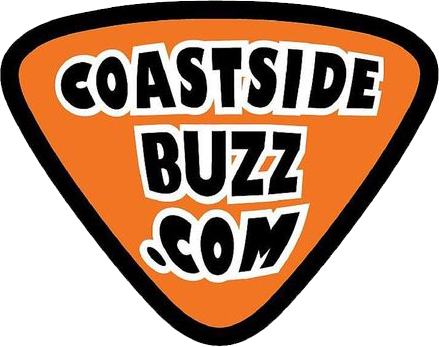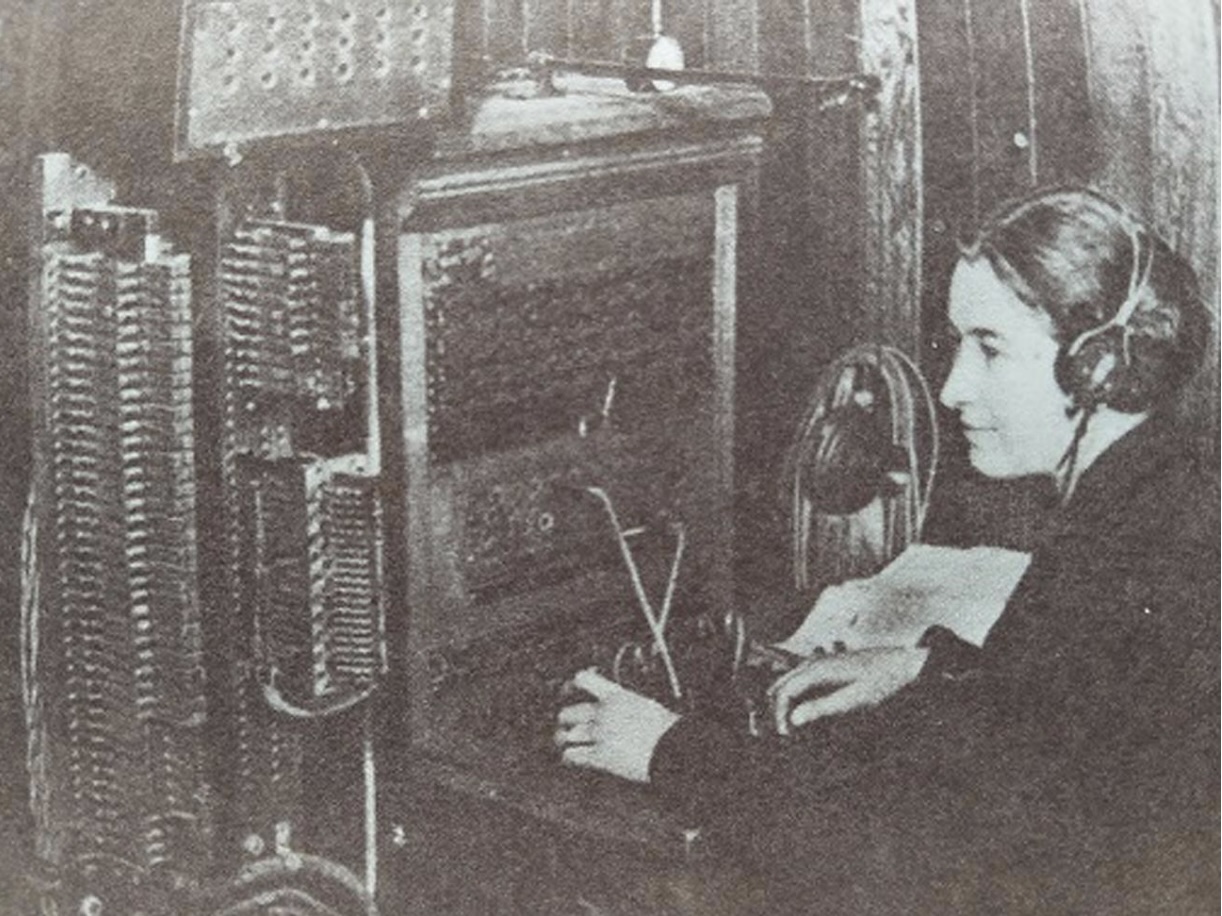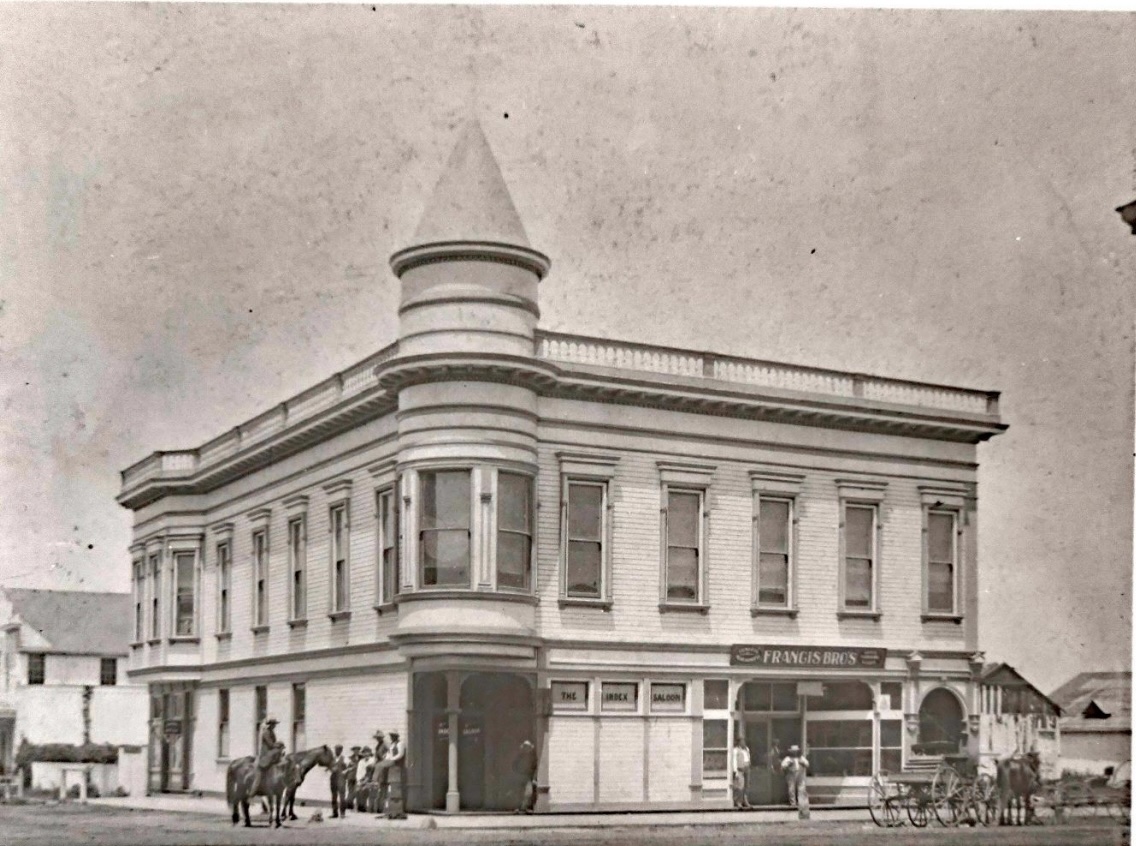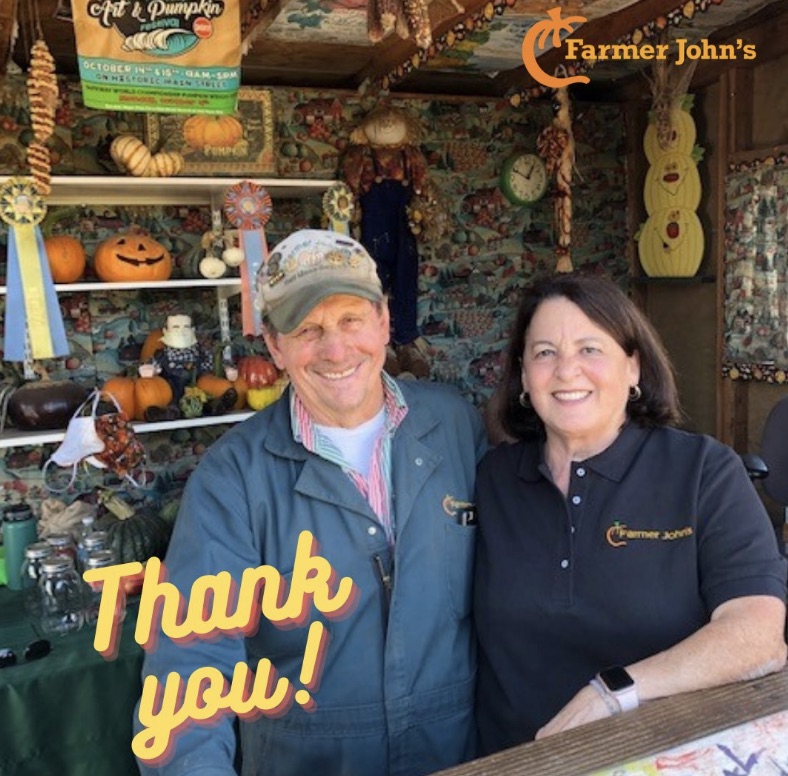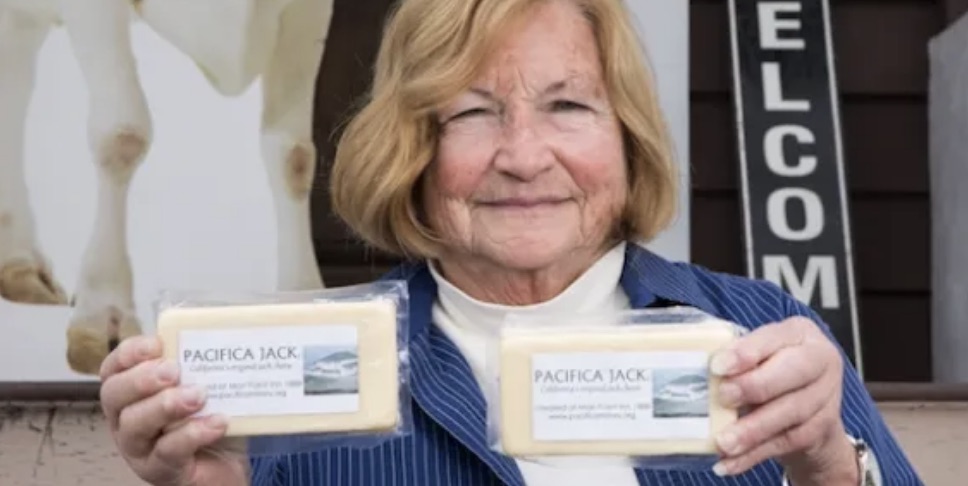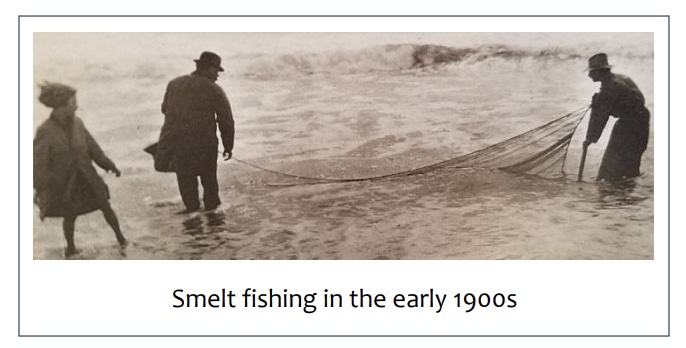|
Getting your Trinity Audio player ready...
|
ARTICLE. From the Half Moon Bay History Association‘s Coastside Chronicles for Winter 2024, by Ellen Chiri.
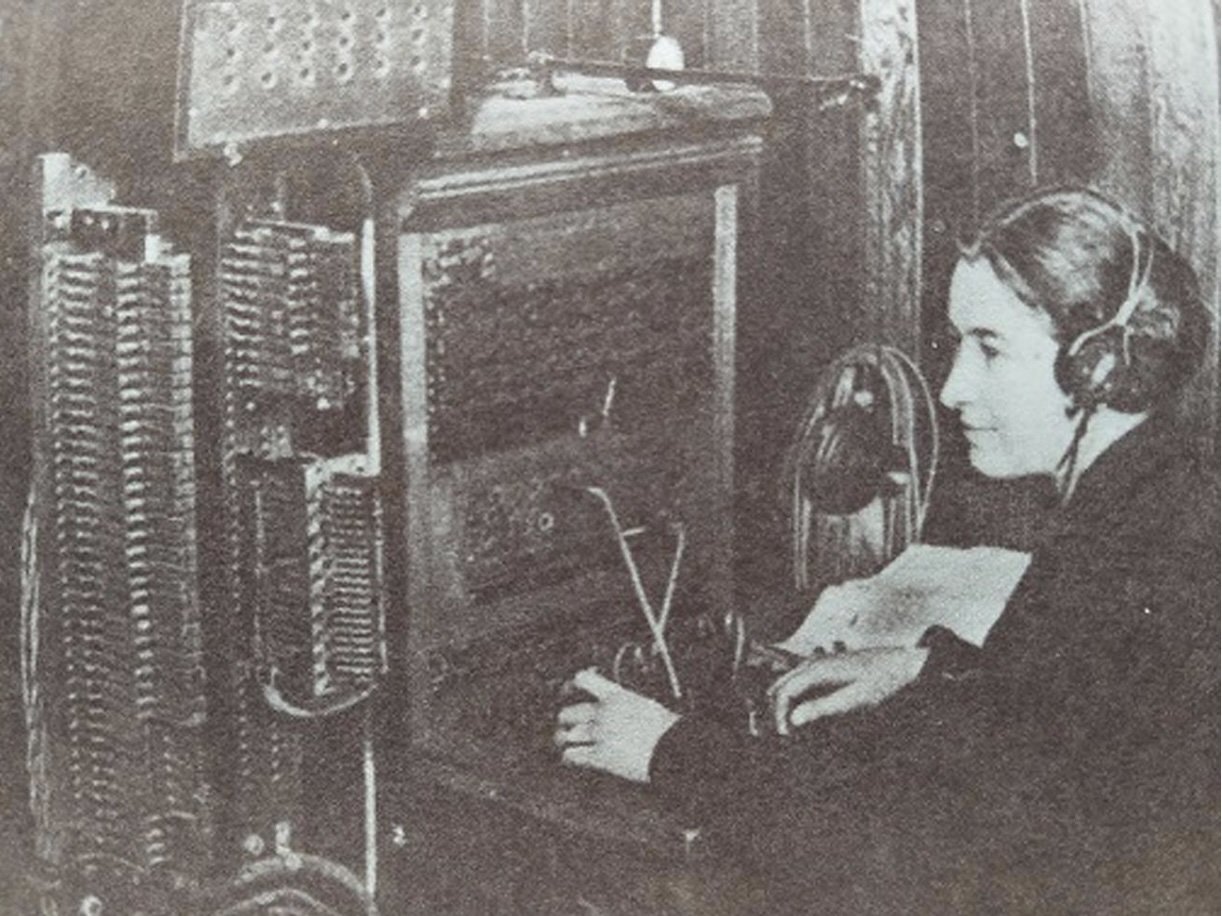
Marion Quinlan was born in Half Moon Bay in 1903. She attended local schools, and after two years in high school she got a job. “I worked in the telephone office in Half Moon Bay for three and a half years,” she said in a 1975 interview with the Spanishtown Historical Society. Quinlan was Half Moon Bay’s first telephone operator.
“At that time there was an agent here by the name of Mrs. Angie Francis, and I worked for her…. Moss Beach, Pescadero, and Half Moon Bay all had agents who were appointed by the phone companies and were the ones in charge of the offices.”
Quinlan’s switchboard office was in the southwest corner of the building that, in the 1920s, became Cunha’s General Store. Constructed in 1900, the building originally housed Francis Brothers Merchandise Store and the Index Saloon.
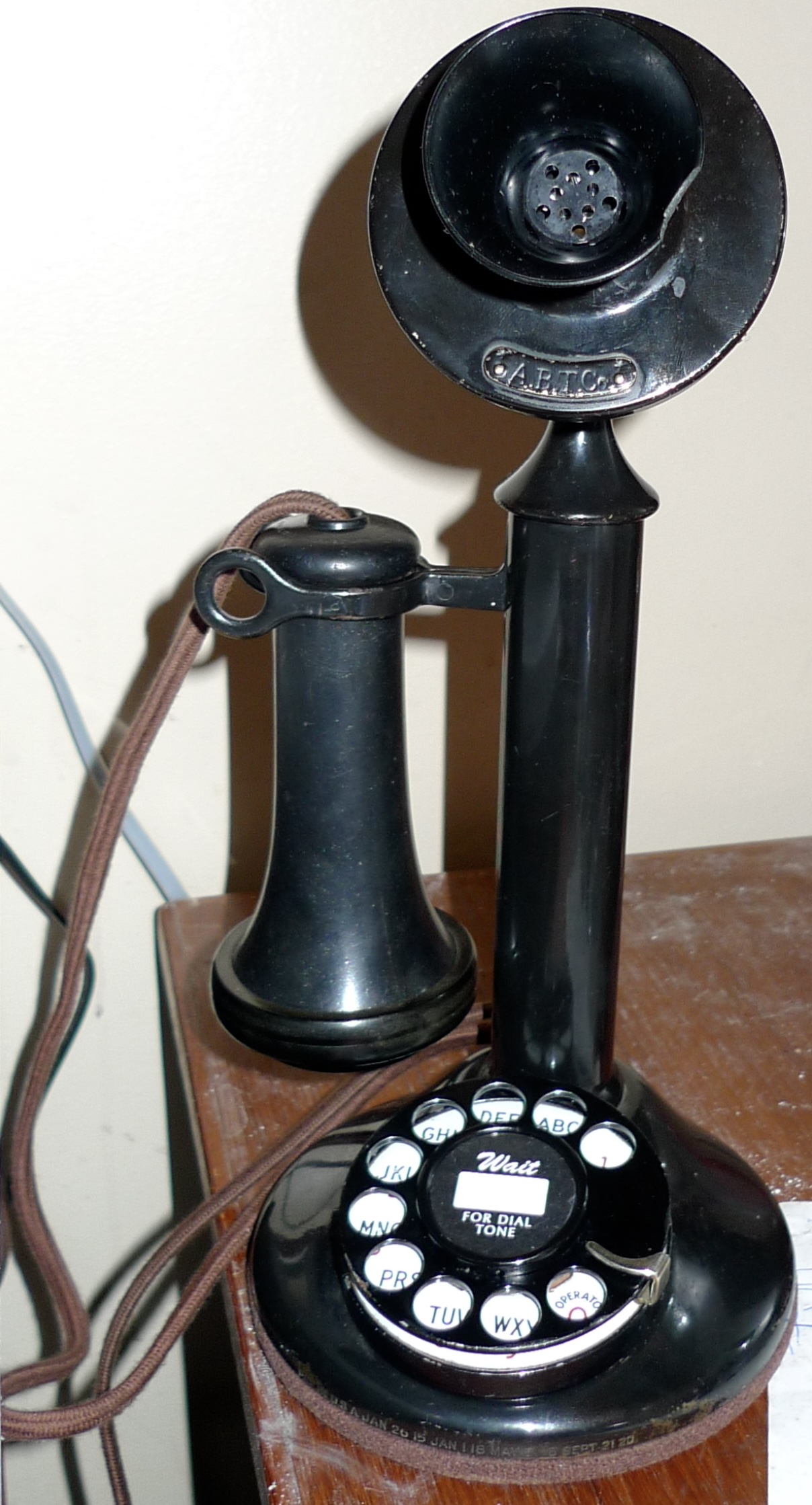
In the early days of telephones (rotary telephones), party lines were the rule, with several subscribers sharing a line. The party-line system provided no privacy and resulted in occasional conflicts.
Some callers were polite—“Excuse me, the line is in use.” And some callers were not so polite—“Get off the line, would you!” Party lines were an excellent source of gossip, with nosy neighbors listening in. Party lines were also an effective way to circulate emergency information on the remote and rural Coastside.
A telephone switchboard was called an exchange. When a caller picked up the phone it activated a cable, and the cable’s associated lamp on the switchboard lit. Quinlan answered the incoming call “Number please?” When the caller gave the number, Quinlan plugged the cable into the appropriately numbered jack, closing the circuit and ringing the called person’s telephone.
Each exchange had a name that identified it, and each telephone on the system was given a set of numbers to go with the exchange name.
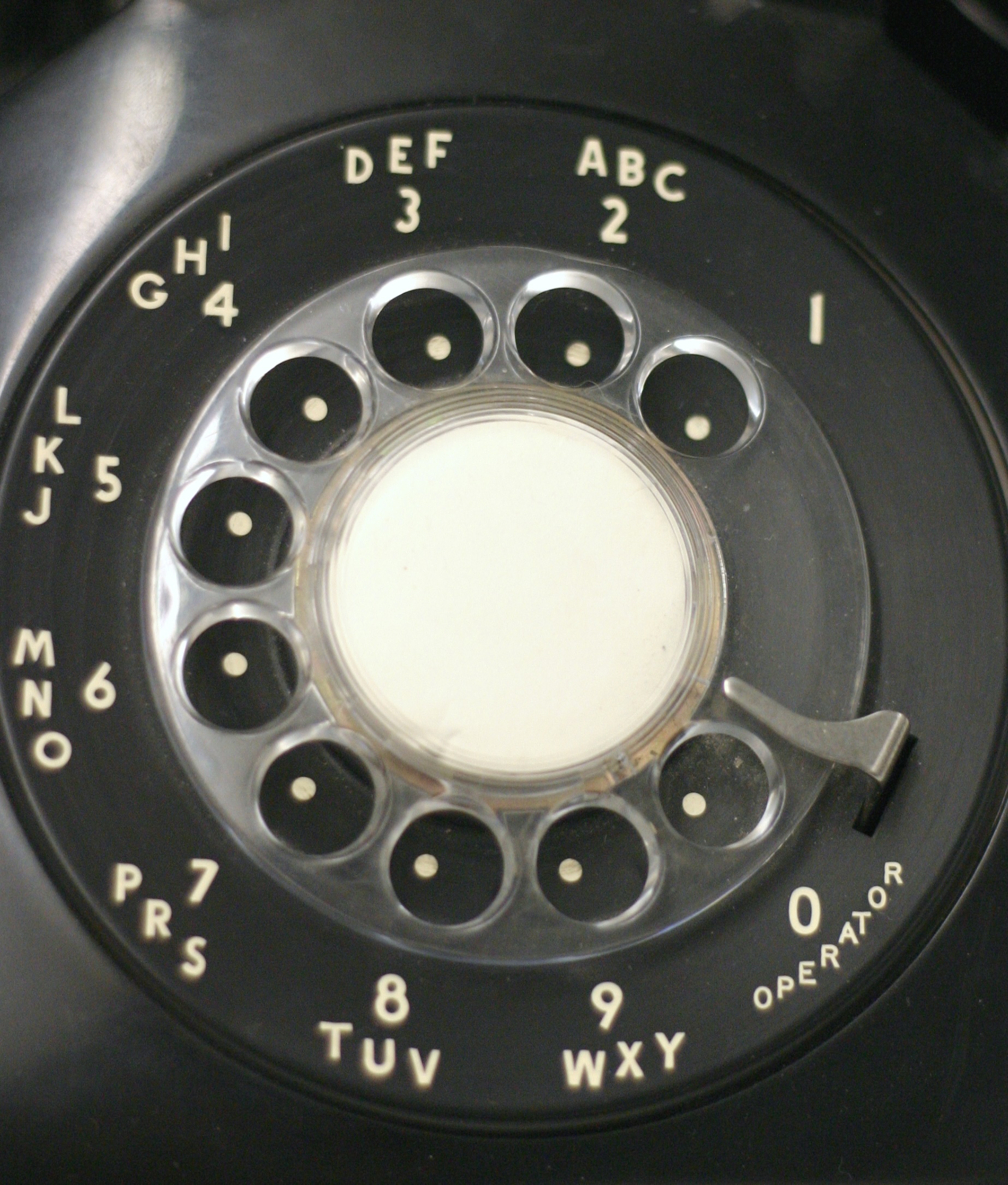
The Half Moon Bay exchange was RAymond 6, which continues today as the first Half Moon Bay prefix of 726.
If the number wasn’t on Quinlan’s switchboard she transferred the call to the correct exchange—for example to Moss Beach, whose exchange was PArkview 8, today’s 728 prefix.
An operator at that switchboard rang the telephone of the person being called.
In 1925, Quinlan married Bill Miramontes. In her 1975 interview with the Spanishtown Historical Society, she said “I knew him all my life and went to school with him. He’s only eight months older than I am but I keep saying he’s a year older!”
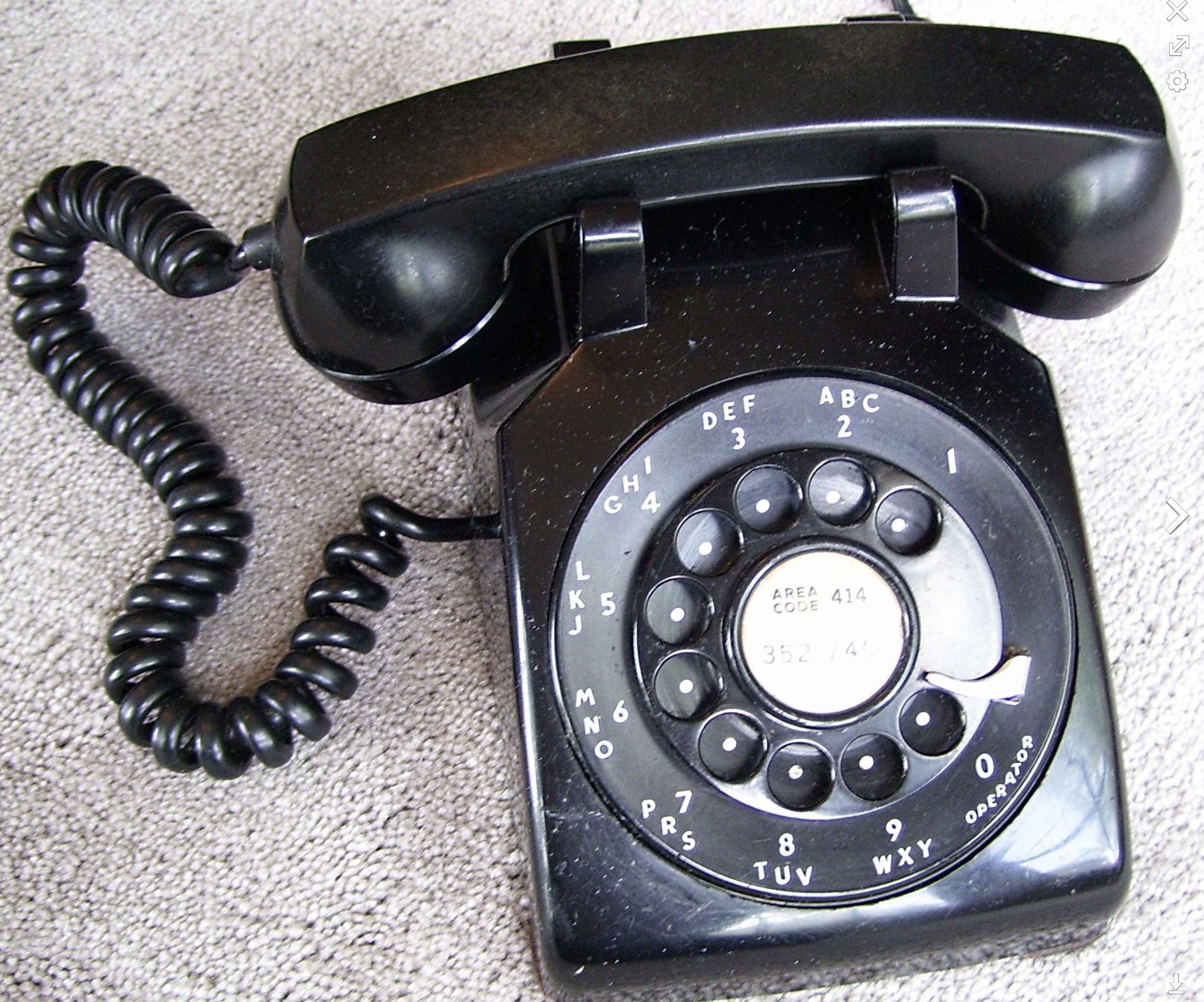
Bill “graduated from high school in 1921,” Quinlan said, “and then went to work in the oil fields. There were many companies drilling for oil around here at that time.” Standard Oil was one of the companies drilling for oil. Bill worked for them for 53 years, first as an oil driller, then delivering gas and oil to the Coastside.
When the couple bought property at the west end of Kelly Avenue “…the man at the bank said, ‘Marion, do you realize
that you are moving right back on the Miramontes land?’ ” That land was Arroyo de los Pilarcitos, the Mexican grant
awarded to Bill’s great-grandfather Candelario Miramontes in 1841.
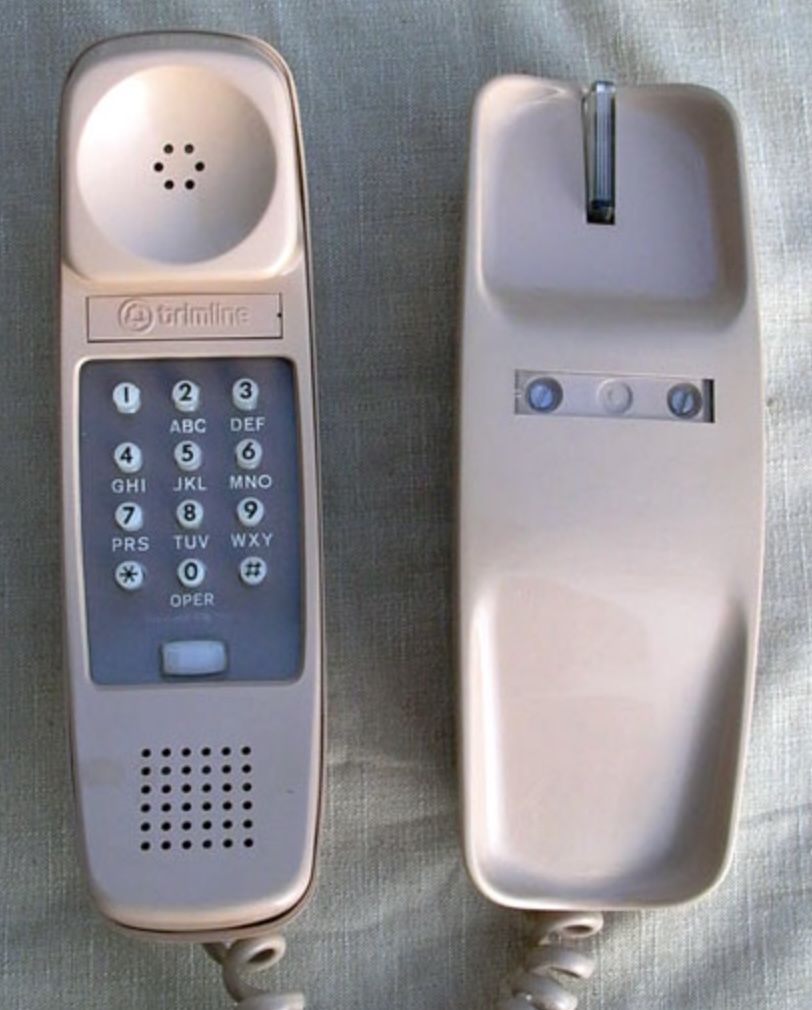
Today as we travel around the Coastside we can imagine quieter times. “We walked to the beach on Sunday afternoons” Quinlan remembered. “We rode around in buggies, and going to Pescadero was a big thing.” Sometimes “…we hired a surrey and spent the day at Miramar.”
Social activities for Quinlan and her friends included going to dances—”We used to go to the American and Portuguese dances and especially enjoyed the Chamarita.” As automobiles replaced buggies “We went to San Gregorio, Pescadero, La Honda and to wherever they had dances and activities.”
However different those days were, the old buildings of historic Coastside towns give us a glimpse of Quinlan’s time. The original Cunha’s market burned down in 2003 but was rebuilt to look as it did in 1900, and we can imagine Quinlan at her switchboard in the southwest corner of Cunha’s Country Grocery.
Modern Teens Try to Complete a Call on a Rotary Dial Phone
If you really love the Coastside Chronicles stories, written by Half Moon Bay History Association docents, perhaps you might like to donate or volunteer as a museum docent!?
More on Coastside History on Coastside Buzz
